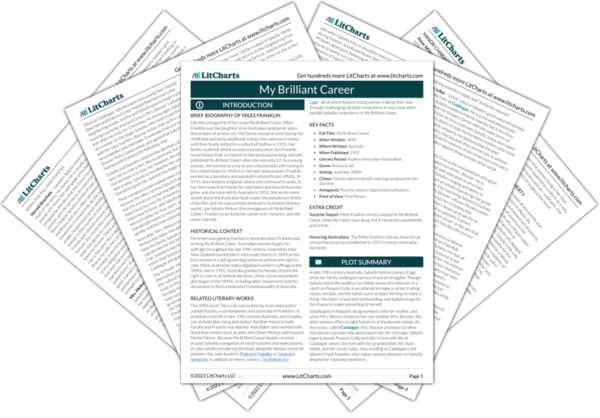Sybylla does not want to marry Harold, but she still craves love, and she has given up her best opportunity at securing it. She has matured past romantic notions of wild, passionate love, and she now defines love as feeling that someone’s “existence is necessary.” This description is simple yet profound, which speaks to Sybylla’s growth. Gertie and Harold grow closer, and Sybylla’s assumption that he will fall for her sister seems to be validated when Mrs. Bossier and Aunt Helen also see the potential for a match. Despite her maturity, Sybylla cannot help but envy her beautiful sister, as Sybylla resigns herself to a life alone. Her description of being “an alien among [her] own kin” highlights Sybylla’s fear of being eternally misunderstood, which she now believes has come true.
